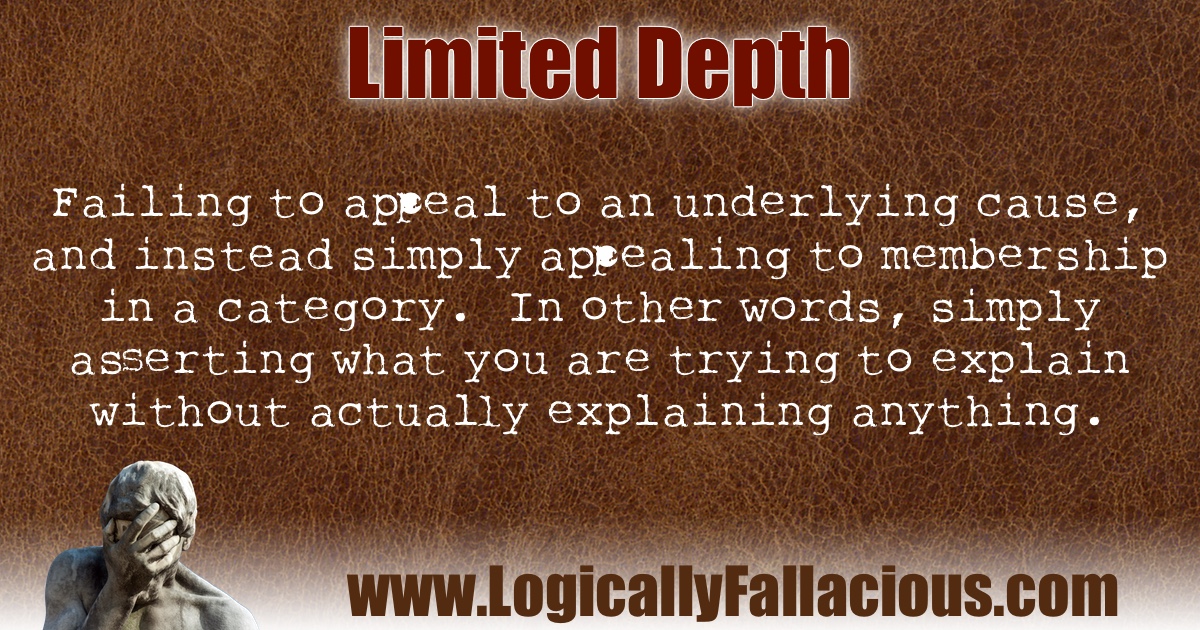Description: Failing to appeal to an underlying cause, and instead simply appealing to membership in a category. In other words, simply asserting what you are trying to explain without actually explaining anything.
Logical Form:
Claim X is made about Y.
Claim X is true because Y is a member of category Z.
Example #1:
My dog goes through our garbage because he is a dog.
Explanation: We know your dog is a dog, but what about him being a dog makes him go through the garbage? By referring to your dog as a member of the category “dog”, this fails to explain anything.
Example #2:
Mormons are really, really nice because they go to Mormon church.
Explanation: Question begging aside, simply stating that Mormons are a member of the group, “Mormon churchgoers” does not explain why they are nice. A reasonable explanation would need to include a valid causal relationship between niceness and Mormon-church-going.
Exception: At times, limited depth can be used as a shorthand when assumptions are made that no deeper explanation is needed.
I need oxygen because I am human!
Fun Fact: Mormons getting their own planet in the Mormon afterlife is actually a misconception, not official Mormon doctrine.
